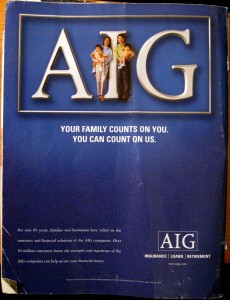Obama Administration continues Bush tradition of free market fundamentalism
William Black was a guest on Bill Moyers Journal yesterday. The conversation was lively and informative, including detailed discussion regarding "liar's loans" (In a liar's loan, the mortgage company doesn't require any verified information from the borrower about the borrower's income, employment, job history or assets). Black indicates that even after all that has come to light regarding the financial collapse, our politicians refuse to use the "F word," fraud. Why? Because too many politicians (and businesses) simply don't believe in fraud. That is the hallmark of free market fundamentalism. To make matters worse, Barack Obama refuses to utter the word "fraud" from his bully pulpit. Nor does Eric Holder or anyone from the Obama Administration:
WILLIAM K. BLACK They can't even get themselves to use the word "fraud."
There's a huge part that is economic ideology. And neoclassical economists don't believe that fraud can exist. I mean, they just flat out -- the leading textbook in corporate law from law and economics perspective by Easterbrook and Fischel, says -- I'll get pretty close to exact quotation. "A rule against fraud is neither necessary nor particularly important." Right?
Notice how extreme that statement is. We don't need laws. We don't need an FBI. We don't need a justice department. We don't even need rules like the SEC. The markets cleanse themselves automatically and prevent all frauds. This is a spectacularly naïve thing. There is enormous ideological content. And it fits with class. And it fits with political contributions.
Do you want to look at these seemingly respectable huge financial institutions, which are your leading political contributors as crooks?
But can't we insist that suspect businesses be audited to determining whether they are committing fraud? Not based on a long sordid track record regarding prestigious accounting firms:BILL MOYERS: Isn't the accounting firm supposed to report this, once they learn from somebody like him that there's fraud going on?
WILLIAM K. BLACK Yes, they're supposed to be the most important gatekeeper. They're supposed to be independent. They're supposed to be ultra-professional. But they have an enormous problem, and it's compensation. And that is, the way you rise to power within one of these big four accounting firms is by being a rainmaker, bringing in the big clients.
And so, every single one of these major frauds we call control frauds in the financial sphere has been-- their weapon of choice has been accounting. And every single one, for many years, was able to get what we call clean opinions from one of the most prestigious audit firms in the world, while they were massively fraudulent and deeply insolvent.
BILL MOYERS: I read an essay last night where you describe what you call a criminogenic environment. What is a criminogenic environment?

